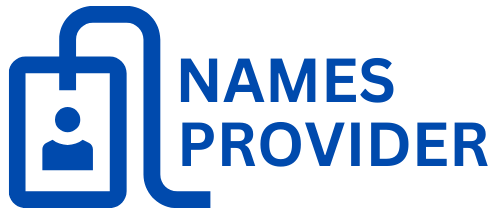Some businesses achieve transformative success by effectively managing change. The frameworks they employ to handle complexity are often the key. The MSP Certification has changed many people’s lives by giving professionals the skills to overcome obstacles and produce quantifiable outcomes.
However, what is the MSP Process, and how has it changed to satisfy the needs of contemporary organisations? Let’s explore its history and discover its significant influence today.
What is the MSP Process?
The Managing Successful Programmes (MSP) framework is designed to help businesses successfully manage and implement transformative change. It provides a structured approach to overseeing related projects within a programme, ensuring alignment with strategic goals and delivering measurable outcomes.
At its core, MSP is built upon three critical components:
- Seven guiding principles that provide a foundation for programme management.
- Governance themes that ensure best practices in leadership, risk management, and stakeholder engagement.
- Transformational flow, which offers a structured approach to managing change and achieving benefits realisation.
Due to its flexibility, MSP is widely used across industries, including technology, healthcare, and government. It helps organisations streamline their programmes, making it a crucial tool for managing large-scale change initiatives.
The Evolution of the MSP Process
The current MSP procedure was not always in place. It has changed over time to accommodate the shifting demands of businesses and sectors. Here is an overview of its journey:
- Early Beginnings (1990s): A Public Sector Initiative
The UK government introduced MSP in the late 1990s as a programme management framework for the public sector. The primary goal was to establish a structured approach for managing large-scale public programmes, focusing on risk management, governance, and accountability.
- Expansion to Private Sector (2000s): Adapting to Complexity
As businesses recognised the benefits of structured programme management, MSP expanded into the private sector. Organisations needed a framework that could handle complex, multi-project environments. During this period, MSP incorporated:
- Stronger governance mechanisms to oversee complex interdependencies.
- A focus on benefits realisation, ensuring that organisations could measure success.
- Improved stakeholder engagement strategies to ensure collaboration across teams.
- Integration of Agile Principles (2010s): Greater Flexibility
With the rise of Agile methodologies, MSP had to adapt to more flexible and iterative approaches. The framework introduced:
- Incremental programme delivery instead of rigid, linear execution.
- Enhanced adaptability to deal with shifting priorities and uncertainties.
- Better responsiveness to change, making it more effective in fast-paced industries.
- Digital Transformation (2020s): Managing Tech-Driven Change
The latest updates to MSP reflect the growing impact of digital transformation. Organisations face rapid technological advancements, requiring a structured yet adaptable programme management approach. Modern MSP versions now:
- Address the challenges of digital innovation and cybersecurity.
- Support AI-driven decision-making within programme management.
- Provide guidance on managing remote and hybrid teams effectively. As businesses continue evolving,
MSP remains relevant by incorporating emerging trends and best practices.
Key Features of the Modern MSP Framework
The contemporary MSP architecture is essential for businesses due to several noteworthy features:
- Seven Guiding Principles
These principles ensure consistent and effective decision-making within a programme. They provide a framework for aligning programme goals with business strategy.
- Governance Themes
Governance themes focus on stakeholder engagement, risk management, and assurance. These ensure that a programme is well-monitored, transparent, and structured.
- Transformational Flow
This structured approach guides organisations through each programme stage—from initiation to benefits realisation. It ensures that no critical steps are overlooked.
- Adaptability
MSP is a highly adaptable framework, making it suitable for organisations of all sizes and industries. Whether in government, healthcare, or tech, MSP can be tailored to specific needs.
- Emphasis on Leadership
Effective leadership is central to MSP. The framework highlights the importance of strong governance and programme direction to ensure successful outcomes.
How the MSP Process Impacts Organisations Today
As the MSP process has developed, it has become an essential tool for businesses looking to implement significant change. This is how it affects contemporary businesses:
- Strategic Alignment
MSP ensures that programmes are closely tied to an organisation’s long-term strategy. This prevents resources from being wasted on initiatives that do not contribute to overall business objectives.
- Improved Risk Management
Risk is an inherent part of programme management. MSP helps organisations:
- Identify potential risks early.
- Develop mitigation strategies.
- Ensure proactive risk response mechanisms.
This minimises programme failure and enhances overall organisational resilience.
- Enhanced Collaboration
MSP fosters better communication and teamwork, ensuring that stakeholders at all levels understand programme goals and contribute effectively.
- Greater Efficiency and Resource Utilisation
By managing interdependencies effectively, MSP eliminates redundancies, ensuring that time, money, and human resources are used optimally.
- Measurable Benefits
MSP’s focus on benefits realisation ensures that organisations can track the impact of their programmes and demonstrate tangible value to stakeholders.
- Adaptability to Market Changes
In today’s fast-changing business environment, MSP enables organisations to quickly respond to evolving customer needs, technological advancements, and market shifts.
Common Challenges in Implementing MSP
While MSP is a powerful framework, implementing it effectively comes with challenges. Here are some common obstacles and how to overcome them:
- Resistance to Change
Challenge: Employees and stakeholders may resist new processes due to fear of disruption.
Solution: Encourage open communication, provide training, and clearly define the benefits of MSP adoption.
- Lack of Senior Management Support
Challenge: Without leadership buy-in, programmes may not receive the necessary resources.
Solution: Demonstrate how MSP aligns with business objectives and the long-term value it provides.
- Poor Stakeholder Engagement
Challenge: A lack of involvement from key stakeholders can lead to misalignment and missed expectations.
Solution: Develop a stakeholder engagement plan to ensure continuous involvement and feedback loops.
- Complexity in Programme Governance
Challenge: Large programmes often involve multiple moving parts, making governance difficult.
Solution: Use MSP’s structured governance themes to create a clear framework for decision-making.
- Measuring Programme Success
Challenge: Some organisations struggle to quantify benefits realisation.
Solution: Set clear, measurable objectives and track progress using MSP’s benefit realisation principles.
Overcoming these challenges ensures successful MSP implementation, leading to improved programme efficiency and better business outcomes.
Conclusion
The Managing Successful Programmes (MSP) framework has come a long way since its early days. From its origins in the public sector to its modern applications across industries, it has evolved to meet the demands of contemporary organisations.
With its guiding principles, governance themes, and transformational flow, MSP remains a critical framework for managing complex programmes and delivering measurable results.
If you want to advance your career in programme management, earning an MSP certification from The Knowledge Academy is an excellent step toward achieving professional success.




